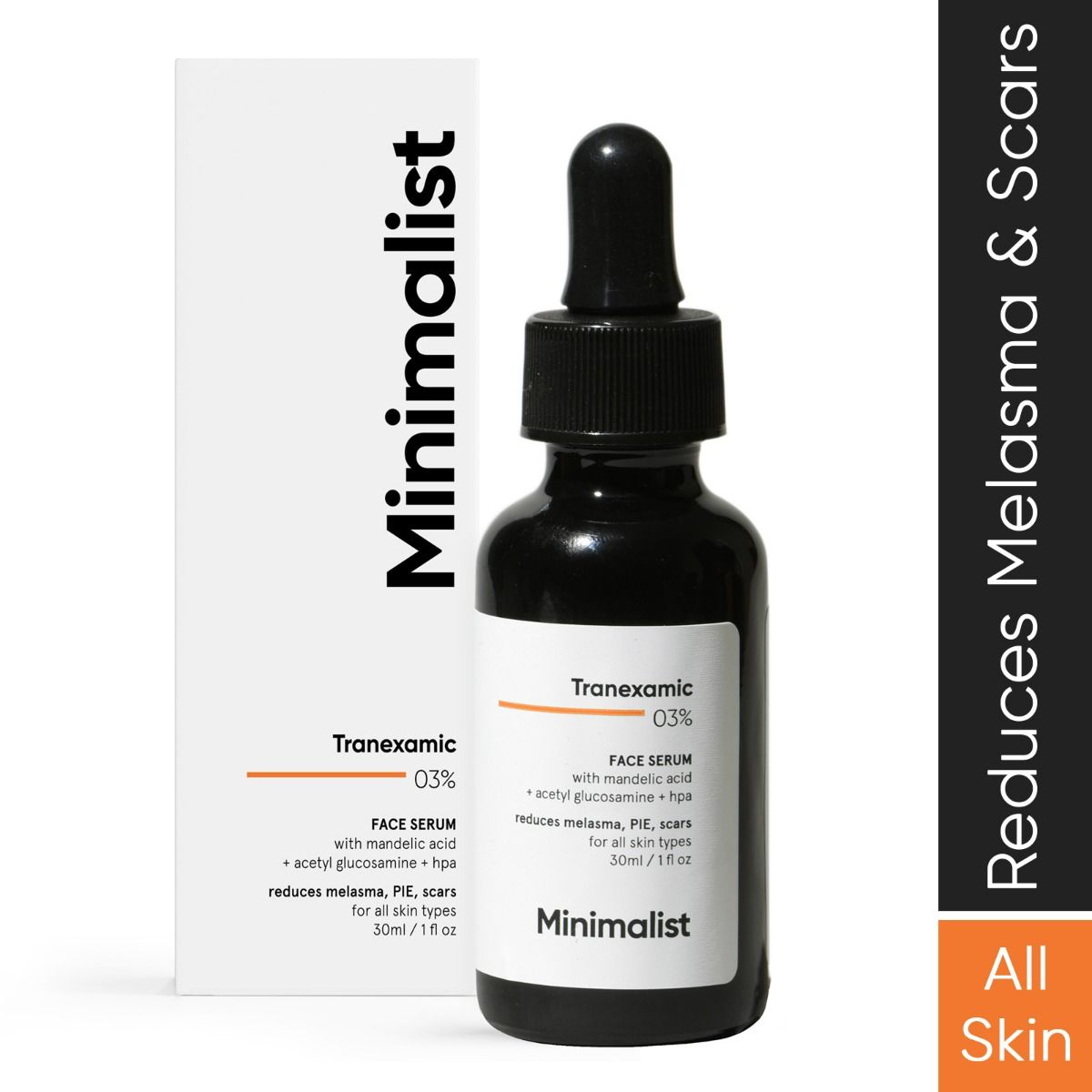About TRANEXAMIC ACID+ETAMSYLATE
TRANEXAMIC ACID+ETAMSYLATE belongs to the class of medications called ‘Antihemorrhagic agents’ used to treat menorrhagia. Menorrhagia is a condition characterized by heavy or prolonged bleeding during menstrual periods. You are said to have menorrhagia if the bleeding is heavy to disrupt your daily activities, soaking one or more sanitary pads or tampons every hour for several consecutive hours, bleeding for more than a week, and experiencing symptoms such as fatigue, weakness, pale face, and shortness of breath. It is also used to stop postoperative hemorrhage (excessive bleeding after a surgical procedure), and local fibrinolysis (abnormal breakdown of blood clots)
TRANEXAMIC ACID+ETAMSYLATE is a combination of two medicines: Tranexamic acid and Etamsylate. Tranexamic acid belongs to the class of ‘anti-fibrinolytic agents’ which acts by regulating the breakdown of blood clots. It blocks the release and action of plasmin, an enzyme essential for the breakdown of clots present in the blood. Etamsylate is a hemostatic agent (prevents bleeding). It increases the ability of platelets to stick together (platelet adhesion) and form blood clots. It inhibits the action of chemical substances that cause the breakdown of platelets. These effects help to decrease abnormal bleeding.
You should take this medicine as prescribed by your doctor. TRANEXAMIC ACID+ETAMSYLATE may cause side-effects such as nausea, vomiting, diarrhea, stomach pain, fever, chills, rash, severe headache, back or joint pain, muscle pain, difficulty moving, and runny or stuffy nose. These side-effects usually go away without any treatment. If you develop any other serious side-effects such as vision problems while using TRANEXAMIC ACID+ETAMSYLATE, consult your doctor immediately.
Do not take TRANEXAMIC ACID+ETAMSYLATE if you are allergic to Tranexamic acid, Etamsylate, and any other ingredients present in it. Do not take this medicine if you have a history of kidney failure, thrombosis (formation of blood clots in the blood vessels), disseminated intravascular coagulation (a disease where blood clots form throughout your body), porphyria (a group of inherited blood disorders), and seizures (fits). Inform your doctor if you are taking birth control pills or fibrinolytic agents (medicines that dissolve blood clots). Also, inform your doctor if you are pregnant or breastfeeding.
Uses of TRANEXAMIC ACID+ETAMSYLATE
Menorrhagia, Postoperative hemorrhage (excessive bleeding after a surgical procedure), and local fibrinolysis (abnormal breakdown of blood clots)
Medicinal Benefits
TRANEXAMIC ACID+ETAMSYLATE is a combination of two medicines: Tranexamic acid and Etamsylate. Tranexamic acid belongs to the class of ‘anti-fibrinolytic agents’. It acts by regulating the breakdown of blood clots in the body. It blocks the release and action of plasmin, an enzyme essential for the breakdown of clots present in the blood. Etamsylate increases the ability of platelets to stick together (platelet adhesion) and form blood clots. It inhibits the action of chemical substances that cause the breakdown of platelets. This effect helps to slow down the abnormal bleeding.
Directions for Use
Storage
Side Effects of TRANEXAMIC ACID+ETAMSYLATE
- Nausea (feeling sick)
- Vomiting (being sick)
- Diarrhea
- Stomach pain
- Swelling of face, lips, eyelids, tongue, hands, and feet
- Dizziness
- Headache
- Chills
- Fever
- Rash
- Pale skin
- Severe headache
- Back or joint pain
- Muscle pain
- Difficulty moving
- Difficulty breathing
- Runny or stuffy nose
In-Depth Precautions and Warning
Drug Warnings
You should not take this medicine until the underlying cause of menorrhagia is established. Inform your doctor if you are using birth control pills, including the patch, vaginal ring, and an intrauterine device (IUD), as there is a risk of deep vein thrombosis (a condition in which blood clot is formed in the deeper vein, mostly legs). Inform your doctor if you are using fibrinolytic agents (drugs that break blood clots) as they may interfere with the activity of TRANEXAMIC ACID+ETAMSYLATE.
Drug Interactions
Drug-drug interactions: TRANEXAMIC ACID+ETAMSYLATE may interact with birth control pills, fibrinolytic drugs (streptokinase, urokinase, reteplase, and alteplase, etc.), an antipsychotic drug (chlorpromazine), and a drug used to treat blood cancer (tretinoin), and progestins (levonorgestrel).
Drug-food interactions: Alcohol consumption may increase the risk of side-effects.
Drug-disease interactions: TRANEXAMIC ACID+ETAMSYLATE should not be used in patients with a history of thrombosis (formation of blood clots in the blood vessels), disseminated intravascular coagulation (a disease where blood clots form throughout your body), porphyria (a group of inherited blood disorders), bleeding in the brain, seizures (fits), liver disease, and kidney failure.
Drug-Drug Interactions Checker List:
Safety Advice

Alcohol
cautionConsumption of alcohol may worsen your health condition as it may increase the risk of side-effects.

Pregnancy
cautionTRANEXAMIC ACID+ETAMSYLATE is a category B medicine and may not show any toxic effects to the fetus. However, it should be used with caution in pregnant women to avoid unwanted risks and only when prescribed by a doctor.

Breast Feeding
cautionTRANEXAMIC ACID+ETAMSYLATE may get secreted in breast milk in very low amounts. However, it should be used with caution in breastfeeding mothers to avoid unwanted risks and only when prescribed by a doctor.

Driving
safe if prescribedTRANEXAMIC ACID+ETAMSYLATE may not affect your ability to drive.

Liver
safe if prescribedTRANEXAMIC ACID+ETAMSYLATE is probably safe in patients with liver diseases. Consult your doctor for further advice.

Kidney
cautionTRANEXAMIC ACID+ETAMSYLATE should be used with caution in patients with kidney diseases. The dose may have to be adjusted by your doctor.

Children
unsafeTRANEXAMIC ACID+ETAMSYLATE is not recommended for use in children.
Habit Forming
Diet & Lifestyle Advise
- Maintain a healthy weight. Stay physically active.
- Consume fresh fruits and vegetables. Avoid spicy, salty, and deep-fried foods. Eating healthy can help you to recover faster.
- Avoid tea, coffee, and cold drinks.
- Drink plenty of fluids to stay hydrated. Fluids are necessary to maintain blood flow in your body.
- Avoid the intake of alcoholic beverages as it can make you dehydrated and also can affect your sleep.
- Avoid physical and psychological stress.
- Relax in a hot bath, use a heating pad, or take herbal teas to reduce stomach cramps. Massage therapy can also help to reduce cramps.
Special Advise
- TRANEXAMIC ACID+ETAMSYLATE may cause an increase in body temperature in some patients. Contact your doctor immediately if you experience a high fever.
- TRANEXAMIC ACID+ETAMSYLATE is not recommended for use in patients with a history of any disease where the eye's blood vessels are obstructed due to clot formation.
Patients Concern
Disease/Condition Glossary
Menorrhagia: Menorrhagia is heavy bleeding during periods. Symptoms include heavy bleeding that disrupts your daily activities, soaking one or more sanitary pads or tampons every hour for several consecutive hours, bleeding for more than a week, and experiencing anemia symptoms such as fatigue, weakness, pale face, and shortness of breath. It can occur various causes such as hormonal imbalance, ovarian failure, uterine fibroids (benign tumors in the uterus), and cancer of the uterus or cervix.
FAQs
How does TRANEXAMIC ACID+ETAMSYLATE work?
Does TRANEXAMIC ACID+ETAMSYLATE stop periods?
In which conditions should I avoid taking TRANEXAMIC ACID+ETAMSYLATE?
I am using birth control pills, can I take TRANEXAMIC ACID+ETAMSYLATE?
What are the common side-effects of TRANEXAMIC ACID+ETAMSYLATE?
Does TRANEXAMIC ACID+ETAMSYLATE affect fertility?
How can I reduce period cramps?
Available Medicines for
TRANEXAMIC ACID+ETAMSYLATE

StayHappi Tranexamic Acid+Mefenamic Acid 500mg/250mg Tablet
1 Strip
₹80.08 (MRP 91)12%Off
cashback: 0


